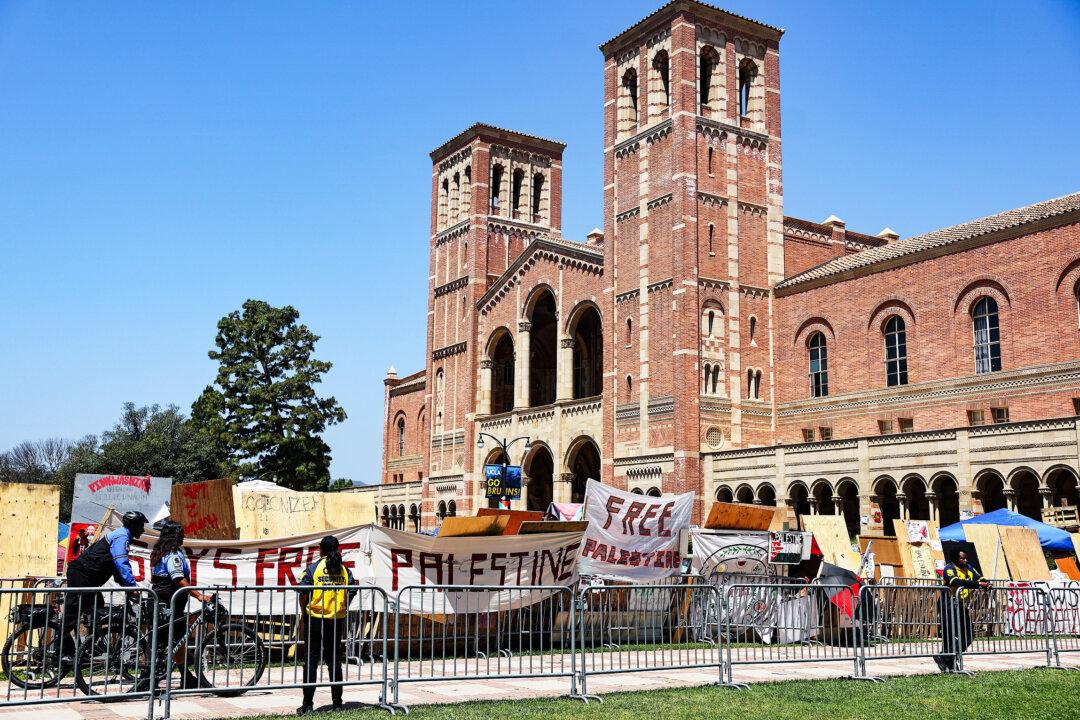A federal judge ordered the University of California–Los Angeles (UCLA) on Aug. 13 to stop preventing Jewish students from traversing the campus amid pro-Palestinian protests.
The ruling was made after three Jewish students sued UCLA in June for allowing protesters to barricade the center of the campus and establish an encampment that obstructed passage to campus facilities.





